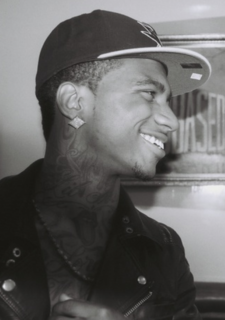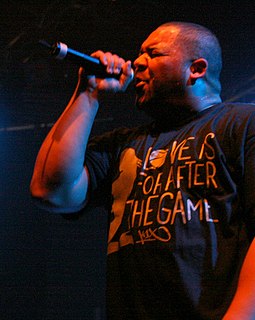A Quote by KRS-One
Hip Hop is an extension of our very being, and so the study of Hip Hop is the study of self-expression leading to the study of one's true self.
Related Quotes
Somewhere down the line, the evil ones stole the legacy of hip hop and flipped it to a corporate type of hip hop. They decided to tell everybody 'Well, this is what hip hop is,' instead of coming back to the pioneers and getting the true definition of what hip hop is and what it was and what we been pushing for all these years.
A lot of the commercial expression of hip-hop leaves a lot to be desired - but then, there's a lot of whack gospel music, but I'm not leading a crusade against it. Of course, the vices of hip-hop are far more influential, I understand. But the good that hip-hop transmits, the power of the culture to rally the best of our protest, and uplift, and resistance, traditions, is often unfairly overlooked.
Socially, hip-hop has done more for racial camaraderie in this country than any one thing. 'Cause guys like me, my kids - everyone under 45 either grew up loving hip-hop or hating hip-hop, but everyone under 45 grew up very aware of hip-hop. So when you're a white kid and you're listening to this music and you're being exposed to it every day on MTV, black people become less frightening. This is just a reality. What hip-hop has done bringing people together is enormous.
My definition of hip hop is taking elements from many other spheres of music to make hip hop. Whether it be breakbeat, whether it be the groove and grunt of James Brown or the pickle-pop sounds of Kraftwerk or Yellow Magic Orchestra, hip hop is also part of what they call hip-house now, or trip hop, or even parts of drum n' bass.


































